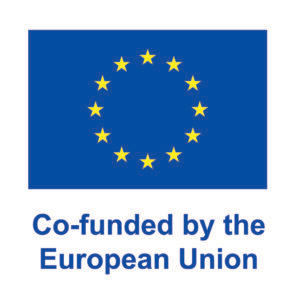IEEE White Paper on CDR: Is Digital Responsibility relevant for logistics?
15/11/2024, Firenze, Italy
As with every other sector that comes to mind, the logistics sector is digitalising and trying to become greener. Indeed, as the reality of the triple planetary crisis becomes more and more evident and pressing, global logistics and freight transport must adapt. We see innovations in terms of Internet of things (IoT) that can combine integrated logistics and eco-responsibility, with the potential to reduce carbon footprints through intelligent transportation. We see the use of artificial intelligence and machine learning for smart route planning to reduce mileage and fuel consumption. There are many such examples, but with digitalisation comes the needs for an attention to responsibility.
With digital responsibility, or Corporate Digital Responsibility (CDR) we refer to “a set of practices and behaviour that help a business to use data and digital technologies in a way that is socially, economically, technologically and environmentally responsible”, while improving efficiency (International CDR Manifesto).
In recognition of the complexities facing organisational leaders in navigating responsibility across the social, economic, and environmental (physical and digital) domains, CDR is a method to assist evidence-based decision-making processes. However, few organisations possess the skills, knowledge, or resources to implement a coherent process or policy to manage potentially conflicting responsibilities, let alone sectoral regulation(s).

Indeed, the recently published White Paper “Corporate Digital Responsibility (CDR) securing our digital futures”, published by IEEE Standards Association in November 2024 (https://store.accuristech.com/ieee/standards/ieee-white-paper?product_id=2922055&vendor_id=11827#full), highlights the challenges organisations face in balancing often conflicting responsibilities and complying with sector-specific regulations.
One of the main goals of the White Paper, co-authored by SLOG4.0 partner Resolvo Srl, is to provide tools to shift organisational culture toward responsible practices, leveraging lessons learned from early CDR adopters.
Resolvo actively promotes the adoption of CDR at an international level by participating in the International CDR Manifesto and assisting micro and small enterprises in implementing CDR practices.
In line with the core content of the SLOG4.0 project, skill-development is recognised as crucial for this transition. CDR offers the opportunity to integrate digital and green skills within the context of the twin transition toward sustainability and digitalisation. Focused educational and capacity building programmes are required.
The SLOG4.0 project is already seeking to put such programmes into action. Partners have recognised that the logistics sector can only make use of new technologies that respect socio-economic and environmental needs, if the people directly involved in supply chain management have the capacity and skills to design and apply the technology. The new generation of advanced workers for the logistics sector will be digitally responsible. Therefore, the answer is YES, 100%. Digital responsibility is relevant for logistics and must be at the heart of future-orientate developments.
The CDR Manifesto: https://corporatedigitalresponsibility.net/cdr-manifesto
The White Paper “Corporate Digital Responsibility (CDR) securing our digital futures”: https://store.accuristech.com/ieee/standards/ieee-white-paper?product_id=2922055&vendor_id=11827#full


